GwinnettForum | Number 22.83 | Nov. 17, 2023
READING TO CHILDREN has many rewards. A program at Stripling Elementary School in Norcross, is described by Howard Hoffman in Another View below. It’s called “Everybody Wins.” In this commentary, Hoffman tells about Leslie Paulsen of Norcross reading to students, and how this policy pays big dividends. (School policy does not allow the photos of the children to be shown.)
TODAY’S FOCUS: Loss of faith in Supreme Court hurting democracy
EEB PERSPECTIVE: Gwinnett County has 10 Masonic lodges in operation
SPOTLIGHT: Gwinnett Place Community Improvement District
ANOTHER VIEW: Everybody Wins produces great result at Stripling school
FEEDBACK: Sends a compliment from home base in Chamblee
UPCOMING: County proposes $2.5 billion budget for 2024
NOTABLE: Marine vet finds new life, heading GGC’s development
RECOMMENDED: Prequel: An American Fight against Fascism by Rachel Maddow
GEORGIA TIDBIT: Georgia marble used in many monuments in Washington
MYSTERY PHOTO: Two-fold mystery this time; what is it, and where?
CALENDAR: Festival of Trees underway at Southeastern Railway Museum
Loss of faith in Supreme Court hurting democracy
By Jack Bernard, contributing columnist
PEACHTREE CITY, Ga. | The Supreme Court of the United States (SCOTUS) is no longer the respected institution that it once was … and for good reason. Its recent decisions have been politically and ideologically biased, voiding present and long-established legal principles. Plus, certain justices have taken what could generously be called inappropriate financial incentives from wealthy GOP donors with business before the court.
 On the first point, multiple Gallup polls have found that Americans are increasingly distrustful of SCOTUS. Per Gallup, in 2002, 62 percent of Americans approved of the way that SCOTUS was “handling its job.” Twenty years later, only 40 percent approve. That is a drop of historic proportions, the largest since polling began.
On the first point, multiple Gallup polls have found that Americans are increasingly distrustful of SCOTUS. Per Gallup, in 2002, 62 percent of Americans approved of the way that SCOTUS was “handling its job.” Twenty years later, only 40 percent approve. That is a drop of historic proportions, the largest since polling began.
The question of “why” is key, but easily answered. Because of the 6-3 conservative politicization of the court and its decision making, there is a dismal 17 percent approval rate among Democrats. But possibly more importantly, only 41 percent of independents now approve of SCOTUS. An important factor contributing to this loss of confidence is the ideologically based SCOTUS overturning of the widely accepted Roe vs Wade decision of 1973, which established a woman’s right to control her own body. But there have been numerous other ideologically based decisions as well in important areas such as gun control and voter rights.
There is a disturbing pattern when it comes to individual members of the court. Most Americans, including Independents, do not have a positive view of Justice Clarence Thomas. Three fourths of Democrats view Thomas negatively. However, despite all of his ethical problems, over two thirds of GOP voters still support him. For them, it is obviously more important that Thomas votes ideologically rather than have ethics.
Thomas once wrote “success (as well as failure) is the result of one’s own talents, morals, decisions, and actions.”
- When nominated for SCOTUS, Thomas was opposed by the NAACP and confirmed by a very narrow 52-48 majority. This vote was because of allegations that Thomas had sexually harassed Anita Hill while a federal employee during the Reagan administration. It should be noted that the only reason he was approved is that many Southern Dixiecrats (including Georgia’s two Senators) supported him.
- Over the last 20 years, there have been repeated allegations that Thomas has accepted various “gifts” from Dallas billionaire Harlan Crow, a major GOP donor. These include annual luxury private airplane and yachting trips, as well as stays at Crow owned resorts.
- It is also alleged that Thomas’ wife has gotten funding via third party groups funded by Crow and others. Much of this has gone unreported by Thomas.
- Thomas has allegedly been indirectly given money by Crow via paying private school tuition for one of his relatives.
There have been similar questionable actions taken by Justice Samuel Alito, who also allegedly took similar luxury trips from conservative donor Paul Singer. He never declared these gifts, and later heard cases involving Singer. Alito failed to recuse himself, an obvious breach of legal ethics.
In private, moderate GOP politicians deplore the lack of values and ethics shown by supposedly conservative men of faith. However, solely for political gain, Congressional GOP members will never act to correct this very public problem. Plus, more ethical GOP officials are choosing to leave office (one example being Senator Mitt Romney) rather than fight the MAGA extremist wing of the party.
Only recently have we seen SCOTUS establish a court code of ethics. The question: is it too late for SCOTUS to regain its non-political status?
- Have a comment? Send to: elliott@brack.net
Gwinnett County has 10 Masonic lodges in operation
By Elliott Brack
Editor and Publisher, GwinnettForum
NOV. 17, 2023 | With the closing of the Masonic Lodge in Norcross (No. 228) back in 2022, it made us curious about other Masonic lodges in Gwinnett.
![]() Turns out that Masonic lodges have been in Gwinnett County since before the Civil War. The two oldest lodges in the county, in Snellville (No. 99) and Lawrenceville (No. 131), were both chartered by the Grand Lodge of Georgia, Free and Accepted Masons, on October 30, 1850. And presently, there are still 10 Masonic lodges functioning in the county.
Turns out that Masonic lodges have been in Gwinnett County since before the Civil War. The two oldest lodges in the county, in Snellville (No. 99) and Lawrenceville (No. 131), were both chartered by the Grand Lodge of Georgia, Free and Accepted Masons, on October 30, 1850. And presently, there are still 10 Masonic lodges functioning in the county.
So why did the Norcross Lodge close? In talking with its previous secretary, J.P. Maier of Norcross, he said that the upkeep on its two story building on South Peachtree Street, had a lot to do with it. Joe Brown of Lawrenceville was the lodge’s worshipful master when it closed. Another reason: over the years the lodge had a declining and much older membership.
The Norcross lodge was once known as the Yellow River Lodge, which was founded in 1858 in a more central part of the county. But by the 1870s, when the railroad came through Gwinnett, the lodge started meeting in Norcross, and eventually purchased its own building there.
“When we surrendered our charter,” Maier says, “that building needed substantial work for it to function as it should. In the past, we Masons would roll up our sleeves and do much of the work ourselves. Our membership being an aging group, finding it tough to crawl around in close spaces, we couldn’t do the work ourselves. And with current regulations, having to have licensed people come in for such work, it drove up the cost of maintaining the building.”
So the membership, which counted 116 at the time, decided to sell the building and surrender its charter. The company that bought the site is currently remodeling the two story building.
The price of the sale was $1.1 million, which was distributed to individual charities. The Masons donated the biggest part of that money to the Masonic Home of Georgia. However, individual Masons determined which charities would receive money from the sale.
Meanwhile, 100 percent of the membership transferred to other lodges, primarily in Duluth, Lawrenceville or Chamblee.
Masonic activities continue briskly in Gwinnett, with most lodges holding twice a week meetings. The Masonic lodges in Gwinnett are:
- Snellville Lodge No. 99 – 119 members;
- Lawrenceville Lodge No. 131 – 113 members;
- Loganville (Fergus) Lodge No. 135 – 250 members;
- Buford Lodge No. 292 – 150 members;
- Sweetwater Lodge No. 421 – 110 members;
- Dacula Lodge No. 433 – 72 members;
- Duluth Lodge No. 480 – 162 members;
- Grayson Lodge No. 549 – 51 members;
- Mountain Park Lodge No. 729 – 126 members; and
- Gwinnett Daylight Lodge (Lawrenceville) No. 744 – 52 members.
Altogether in the state of Georgia, there are 27,116 freemasons, in 384 lodges, with membership holding steady.
- Have a comment? Send to: elliott@brack.net
Gwinnett Place Community Improvement District
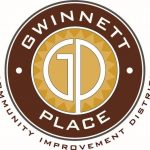 The public spiritedness of our sponsors allows us to bring GwinnettForum.com to you at no cost to readers. Today’s underwriting sponsor is the Gwinnett Place Community Improvement District (CID). It is a self-taxing district that uses additional property taxes to accelerate infrastructure improvements, security enhancements and economic development initiatives. The CID is leading the effort to expedite mobility, quality of life and job creation strategies for the benefit of businesses, employees, and visitors to Gwinnett’s central business district. Through partnerships with Gwinnett County Government, the Gwinnett Chamber of Commerce, the State of Georgia and others, the CID has a proven track record of improvements that are transforming Gwinnett Place. While the Gwinnett Place CID comprises less than one percent of Gwinnett County’s landmass, the area has a $15.9 billion annual economic impact on the state of Georgia. Representing seven percent of all Gwinnett County jobs, the district’s 2,054 companies and 28,688 workers produce $7.5 billion in sales each year and $2.1 billion in earnings (wages + benefits). For more information, visit GwinnettPlaceCID.com and VisitGwinnettPlace.com.
The public spiritedness of our sponsors allows us to bring GwinnettForum.com to you at no cost to readers. Today’s underwriting sponsor is the Gwinnett Place Community Improvement District (CID). It is a self-taxing district that uses additional property taxes to accelerate infrastructure improvements, security enhancements and economic development initiatives. The CID is leading the effort to expedite mobility, quality of life and job creation strategies for the benefit of businesses, employees, and visitors to Gwinnett’s central business district. Through partnerships with Gwinnett County Government, the Gwinnett Chamber of Commerce, the State of Georgia and others, the CID has a proven track record of improvements that are transforming Gwinnett Place. While the Gwinnett Place CID comprises less than one percent of Gwinnett County’s landmass, the area has a $15.9 billion annual economic impact on the state of Georgia. Representing seven percent of all Gwinnett County jobs, the district’s 2,054 companies and 28,688 workers produce $7.5 billion in sales each year and $2.1 billion in earnings (wages + benefits). For more information, visit GwinnettPlaceCID.com and VisitGwinnettPlace.com.
- For a list of other sponsors of this forum, click here.
Everybody Wins produces great results at Stripling school
By Howard Hoffman
BERKELEY LAKE, Ga. | “People often commend me for my dedication to these students; however, if the truth were known, the program, the personal interaction with the children, the robust smiles received, fuel and fill ME,” says Leslie Paulsen about the Everybody Wins program at Stripling Elementary in Norcross. She lives in Norcross and is a senior vice president for a Norcross commercial insurance company.
For ten years she’s been there every Thursday (during school year) for her 30 minute individual session. Sometimes reading to two students. Pre-Covid, she is also on hand when the program includes Tuesdays.
Everybody Wins is more than hyperbole.
Patricia McCants, program manager directing operations of Everybody Wins at eight schools in Atlanta, says “The program is designed and proven to increase literacy skills in elementary students in low-income areas.” There are 2,675 students and 288 volunteers working in the program. Stripling is the lone school participating in Everybody Wins in Gwinnett.
Jeanna Bierenfeld, program coordinator for Stripling School for 13 years, adds: “It teaches students to love reading. It expands their mind and knowledge of the world. It encourages struggling. Covid paused the program, as volunteer’s lifestyles and work dynamics changed and as a result we’ve witnessed a dramatic decrease in our mentors.”
Volunteers read only on Thursdays to a student (sometimes two) from a book selected by the student from the school library. The sessions take place during lunch (30 minutes), which the students bring from the cafeteria to the volunteer in the school library.
Ms. McCants, who started with the Everybody Wins in 2019, says: “Of course, we are only limited by the number of volunteers we have in spreading this program. There are numerous studies and statistics that bear out the success of this program. Plus significant metrics show increases in vocabulary, zeal to read books, etc. There is a host of statistics and information concerning the value of getting young people reading.”
She adds: “We hope the student remains at a Power Lunch program school and we can continue to work with them throughout elementary school,” who adds that she sees the impact the program has on students—academically and socially.”
Ms. Paulsen has devoted much of her life to active philanthropy work by pledging her time, talent, and financial resources—admitting that the “in-person volunteer opportunities” are by far the most rewarding. She added, “Everybody Wins Atlanta is a proven program dedicated to enriched reading, confidence enhancement and most of all a “win-win” for the mentee AND the mentor.
- For more information about this program, go to Everyonewinsatlanta.org.
- Have a comment? Send to: elliott@brack.net
Sends a compliment from home base in Chamblee
Editor, the Forum:
![]() The GwinnettForum is very well done. It’s good that you are using your God-given gifts!
The GwinnettForum is very well done. It’s good that you are using your God-given gifts!
– Gary Christensen, Chamblee
- Send us your thoughts: We encourage you to send us your letters and thoughts on issues raised in GwinnettForum. Please limit comments to 300 words, and include your hometown. The views of letters are the opinion of the contributor. We reserve the right to edit for clarity and length. Send feedback and letters to: elliott@brack.net.
County proposes $2.5 billion budget for 2024
Gwinnett County Board of Commissioners Chairwoman Nicole Love Hendrickson presented her proposed budget on Tuesday to guide County government spending for the 2024 fiscal year. The proposed budget for 2024 totals $2.5 billion. It consists of a $1.96 billion operating budget and a $542 million capital improvements budget, which includes funds from the County’s Special Purpose Local Option Sales Tax program.
 Chairwoman Hendrickson said the proposed budget addresses challenges facing the County, including hiring and retaining a qualified workforce, affordable housing and public safety. “Our 2024 proposed budget focuses on ensuring that we can maintain our exceptional services while prioritizing the rapidly changing needs of our residents and businesses,” said Hendrickson. “With this budget, we’re taking prudent steps to address priorities like infrastructure, sustainability and a healthy community that not only impact our county today but sets us up for success long into the future.”
Chairwoman Hendrickson said the proposed budget addresses challenges facing the County, including hiring and retaining a qualified workforce, affordable housing and public safety. “Our 2024 proposed budget focuses on ensuring that we can maintain our exceptional services while prioritizing the rapidly changing needs of our residents and businesses,” said Hendrickson. “With this budget, we’re taking prudent steps to address priorities like infrastructure, sustainability and a healthy community that not only impact our county today but sets us up for success long into the future.”
Under the proposed budget, the County will develop a biosolids dryer facility to reduce the environmental impact and cost of transporting waste material from the F. Wayne Hill Water Resources Center to landfills, update the Solid Waste Management Plan and continue to enhance the Gwinnett Trails network as part of its sustainability efforts.
As Gwinnett continues to grow, a healthy community remains a priority. The budget also includes steps to improve access to affordable housing, a health care initiative investing in mental and chronic health care, additional positions to handle 911 calls and additional staff and vehicles for Gwinnett Fire and Emergency Services.
The proposed 2024 budget resolution is available online at GwinnettCounty.com and as a hard copy in the Financial Services office at the Gwinnett Justice and Administration Center in Lawrenceville during business hours, Monday through Friday from 8 a.m. until 5 p.m.
Commissioners will hold a public hearing at the Gwinnett Justice and Administration Center on December 4 at 6:30 p.m., and residents can offer input on the County’s website through December 31. Commissioners will consider the 2024 budget at their first meeting of the new year on January 2, 2024
Marine vet finds new life, heading GGC’s development
By Ken Scar
NOV. 17, 2023 | Georgia Gwinnett College (GGC) development director Matthew May had arrived at a crossroads in his life when he came to the Marine Corps — or rather, the Marine Corps came to him. He was 20 years old and had just failed out of college, squandering the soccer scholarship he’d earned as a star player growing up in Chicago.
May says: “I was sitting on the couch watching television, wondering, ‘What am I going to do with my life?’ when a commercial for the Marine Corps came on,” He got off the couch, went to the local recruiting station, and joined that day. “Once I failed in life, I had to take a hard look in the mirror, and the Marine Corps was the answer,” he feels.
May spent six years, from 2007 to 2013, as an infantry rifleman, including two tours of duty in Afghanistan and one in Iraq, and rose to the rank of sergeant. The day-to-day problems in the civilian workforce, safely back home within friendly U.S. borders, don’t seem that dire to those who’ve had to make life-and-death decisions while being shot at, a perspective that aided him greatly as he transitioned back into civilian life.
May never lost his desire to earn a college degree, so the first thing he did after taking off the uniform was enroll in a North Carolina community college, and at the same time, work as a car salesman to pay the bills. When his ex-wife moved to Georgia, May moved to Lawrenceville to be closer to his three children. It was then that May first set his eyes on GGC.
“I was determined to get a college degree,” he says. “GGC was my fifth college and by far the best in my eyes. All the new technology appealed to me, but especially the small class sizes. Being around large groups of people isn’t ideal for some of us veterans, and I’m low-key and not good at school, so having one-on-one time with teachers was priceless. That got me through.”
May received a business administration degree with a management concentration in 2018. At the time, he never would have imagined his path would circle back to his alma mater, but life, like war, is nothing if not unpredictable.
He worked as an account executive at a telecommunications company and later in business development in the aerospace and defense arena. “It was a lot of travel. I missed my kids’ soccer tournaments sometimes, and it got to the point where I just wanted to be grounded again and not have to travel to the airport every week.”
When he came across a job posting for a prospect development manager position at GGC, a job involving work with potential donors, he got the job. He recently was promoted to the role of development director.
“I never thought of higher education. It was unexpected but exhilarating.” He now lives two miles from campus and has about a five-minute commute. His children are less than 20 minutes away.
It’s been a long, sometimes harrowing road from Marine Corps boot camp to the GGC campus, but May says he’s grateful for the journey. It brought him to a job he enjoys in a place he loves, with time to spend with his kids. God works in mysterious ways. He doesn’t give you anything you can’t handle, and the rewards can be great.”
Prequel: An American Fight against Fascism by Rachel Maddow
![]() From Raleigh Perry, Buford: From the late 1920s through the period between World War I and World War II, from the early 1930s to 1945, there was an active move in the United States by certain groups to form a fascist government. This book sheds light on these early attempts at fascism and the people behind the movement, giving insight to what is happening today. It deals with several fascist organizations and points to the people (many well known) who were involved. It highlights anti-jewish, anti-communist efforts and even gives the beginning of the Christian Nationalist movement. She ends it with a trial, but I do not want to give away the story. Hitlerism puts another story into the cycle. As the title indicates, it is truly a prequel to the fascist movements of today. Read this and then look at the Heritage Foundation PROJECT 2025 on the internet. You will be amazed.
From Raleigh Perry, Buford: From the late 1920s through the period between World War I and World War II, from the early 1930s to 1945, there was an active move in the United States by certain groups to form a fascist government. This book sheds light on these early attempts at fascism and the people behind the movement, giving insight to what is happening today. It deals with several fascist organizations and points to the people (many well known) who were involved. It highlights anti-jewish, anti-communist efforts and even gives the beginning of the Christian Nationalist movement. She ends it with a trial, but I do not want to give away the story. Hitlerism puts another story into the cycle. As the title indicates, it is truly a prequel to the fascist movements of today. Read this and then look at the Heritage Foundation PROJECT 2025 on the internet. You will be amazed.
- An invitation: what books, restaurants, movies or web sites have you enjoyed recently? Send us your recent selection, along with a short paragraph (150 words) as to why you liked this, plus what you plan to visit or read next. Send to: elliott@brack.net
Georgia marble used in many monuments in Washington
Marble, a metamorphosed limestone prized for its hardness and variety, is quarried in north Georgia near Tate, in Pickens County. This marble has been used extensively for gravestones and in buildings throughout the United States, including the U.S. Capitol. Sixty percent of the monuments in Washington, D.C., in fact, are made from Georgia marble.
 The earliest known use of Georgia marble dates to 1400, when effigies, bowls, projectile points, and other necessities were carved out of native marble. These early artifacts, found in Pickens County, are part of the permanent exhibit at the Etowah Mounds near Cartersville.
The earliest known use of Georgia marble dates to 1400, when effigies, bowls, projectile points, and other necessities were carved out of native marble. These early artifacts, found in Pickens County, are part of the permanent exhibit at the Etowah Mounds near Cartersville.
The area’s marble industry began after the mid-1830s, when Henry T. Fitzsimmons, an Irish stonemason, was traveling through north Georgia and discovered outcroppings of surface marble in the Long Swamp Valley of what was then Cherokee County. He immediately obtained the land, opened the Long Swamp Marble Company, and quarried the marble by very crude means. He then carved monuments and memorials that were sold throughout the area.
Georgia’s next entrepreneur in the marble industry was Samuel Tate, who in the 1830s purchased land lottery tracts in north Georgia, much of which included large marble deposits. In 1845 Tate signed an agreement with James Ferrel, James C. Holmes, and Gideon Roberts, all from Alabama, that allowed for quarrying on his land. There is no evidence, however, that this agreement was ever enacted. In 1850, while continuing to farm, Tate became a partner in a marble company that opened a quarry in the vicinity of the present Georgia Marble Company in the town that later became known as Tate.
By 1880 the marble industry was defunct, lacking the necessary capital and transportation network to thrive. The arrival of the railroads by 1883 to Pickens County, with the establishment of the Marietta and North Georgia Railroad system, revitalized the industry by providing a means of transporting blocks and finished marble products. Northern capitalists invested in the industry, and the Tate family created the Georgia Marble Company in 1884. Marble finishing plants sprung up in Pickens County; Ball Ground and Canton in Cherokee County; and Marietta in Cobb County.
In the late 1880s Samuel Tate’s sons, Stephen Clayton Tate and William Tate, increased their landholdings in the area and assumed a more direct role in the management of the marble industry. The family signed a twenty-five-year lease of the marble quarries with an option for renewal. Other companies attempted to capitalize on the industry with limited success, but the Tate family successfully expanded the markets for its Georgia Marble Company stone. In addition, Stephen and William Tate were on the board of directors of the Etowah quarry, which opened in 1890 and provided the first truly pink marble.
By 1900 there were 110 men employed in the marble industry in Tate. Over the next ten years, the number of workers increased to 182, and the Georgia Marble Company began to construct employee housing near the marble quarries and mills. Again, however, the company lacked the capital to make needed improvements in the quarrying and finishing operations, and the net profit in 1900 was a little more than $14,000.
(To be continued)
- To view the Georgia Encyclopedia article online, go to https://www.georgiaencyclopedia.org
Two-fold mystery this time: what is it, and where?
Today we have a two-fold mystery: what is this, and where is it located? This one could be difficult, so think hard. Send what you come up with to elliott@brack.net and include your hometown.
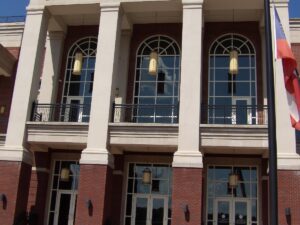 The last mystery was a close-up of a photo that had been run before. Jayne Bane of Lawrenceville recognized it immediately: “The mystery photo of your November 14 edition is the Buford Community Center. I go by it on my way to work. It’s beautiful and especially when decorated for Christmas or when we have snow. Thank you for curating an informative publication.”
The last mystery was a close-up of a photo that had been run before. Jayne Bane of Lawrenceville recognized it immediately: “The mystery photo of your November 14 edition is the Buford Community Center. I go by it on my way to work. It’s beautiful and especially when decorated for Christmas or when we have snow. Thank you for curating an informative publication.”
Allan Peel of San Antonio, Tex. also recognized it: “Been there … done that! Well no … I have never actually been to the Buford Community Center, but somehow I experienced a déjà-vu moment when I saw today’s mystery photo. It was published previously. Yup, this photo was taken by none other than George Graf when he visited you in Gwinnett County and was featured in the Sept. 30, 2022 edition of the GwinnettForum. Only this time it is a close-up of the building.”
Others spotting the photo included Lou Camerio, Lilburn; Susan McBrayer, Sugar Hill; and Jay Altman, Columbia, S.C.
- SHARE A MYSTERY PHOTO: If you have a photo that you believe will stump readers, send it along (but make sure to tell us what it is because it may stump us too!) Send to: elliott@brack.net and mark it as a photo submission. Thanks.
Festival of Trees underway at Southeastern Railway Museum
![]() Everything I Learned, I Learned in a Chinese Restaurant is the title of Award-winning writer and filmmaker Curtis Chin’s new memoir. He will discuss his book with Natalie Keng, founder of Global Health, on November 17 at 7 p.m. at the Norcross Branch of the Gwinnett County Public Library. Books will be available for sale and signing
Everything I Learned, I Learned in a Chinese Restaurant is the title of Award-winning writer and filmmaker Curtis Chin’s new memoir. He will discuss his book with Natalie Keng, founder of Global Health, on November 17 at 7 p.m. at the Norcross Branch of the Gwinnett County Public Library. Books will be available for sale and signing
Ninth annual Festival of Trees will be from November 19 until January 1 at the Southeastern Railway Museum, 3595 Buford Highway in Duluth. See over 20 decorated trees sponsored by local businesses and individuals. Enjoy train rides, food and entertainment, and vote for your favorite tree. On November 18, Santa Claus will arrive by train at 1 p.m. The Festival is sponsored by the Duluth Fine Arts League.
Messiah Sing-A-Long with the Gwinnett Symphony will be Sunday, November 19,at 3 p.m. at the Lawrenceville Presbyterian Church, 800 Lawrenceville Highway. Rick Smith will conduct the Orchestra along with its Chorus in Handel’s Messiah Part 1 and the Hallelujah Chorus. Scores will be available in the lobby.
Gwinnett Historical Society will meet on Monday, November 20, at 6:30 p.m. at Rhodes Jordan Park Community Center, at 100 East Crogan Street in Lawrenceville. Speakers will be veteran educators Beauty Baldwin and Brooks Coleman talking on the history of public education in Gwinnett County. Gregory Bailey will moderate the meeting.
Gwinnett chapter of the Greater Atlanta Home Builders Association will meet on Tuesday, November 28, at 11:30 at Jackson EMC in Lawrenceville, at 825 Buford Drive. Speaker will be Emory Morsberger, founder of Gateway85 CID and Tucker Summit CID. To register online, go to www.ATLANTAHOMEBUILDEERS.COM.
Build a Successful Business workshop will be on November 28 at 7 p.m. at the Suwanee branch of Gwinnett County Public Library. This session is designed to equip aspiring entrepreneurs and business owners with the essential knowledge and tools to transform their ideas into thriving ventures.
Understanding the rise of Antisemitism: join the community for a conversation about antisemitism on Thursday, November 30, at 5:30 at The 1818 Club, 6500 Sugarloaf Parkway in Duluth. Hear Eytan Davidson, regional director of the Anti-Defamation League, moderated by Peter Schneider, president of Primerica, and an ADL board member. There is no cost. The gathering is sponsored by the Rotary Club of Gwinnett County. For reservations, visit https://bit.ly/RotaryNPFH.
Those wanting to attend Braselton’s fourth annual Cravin’ Bacon Walk should order their tickets now. The event will be December 7 from 5 to 9 a.m. in downtown Braselton. There are two levels of tickets: the $35 Squealer ticket, and the $65 VIP ticket, for those over age 21. For tickets, go here.
Gwinnett chapter of the Greater Atlanta Home Builders Association will meet on Tuesday, November 28, at 11:30 at Jackson EMC in Lawrenceville, at 825 Buford Drive. Speaker will be Emory Morsberger, founder of Gateway85 CID and Tucker Summit CID. To register online, go to www.ATLANTAHOMEBUILDEERS.COM.
GwinnettForum is provided to you at no charge every Tuesday and Friday.
Meet our team
- Editor and publisher: Elliott Brack, 770-840-1003
- Managing editor: Betsy Brack
- Roving photographer: Frank Sharp
- Contributing columnist: Jack Bernard
More
- Mailing address: P.O. Box 1365, Norcross, Ga. 30091
- Work with us: If you would like to learn about how to be an underwriter to support the publication of GwinnettForum as a community resource for news and commentary, please contact us today.
Subscriptions to GwinnettForum are free.
- Click to subscribe.
- Unsubscribe. We hope you’ll keep receiving the great news and information from GwinnettForum, but if you need to unsubscribe, go to this page and unsubscribe in the appropriate box.
© 2023, Gwinnett Forum.com. Gwinnett Forum is an online community commentary for exploring pragmatic and sensible social, political and economic approaches to improve life in Gwinnett County, Ga. USA.



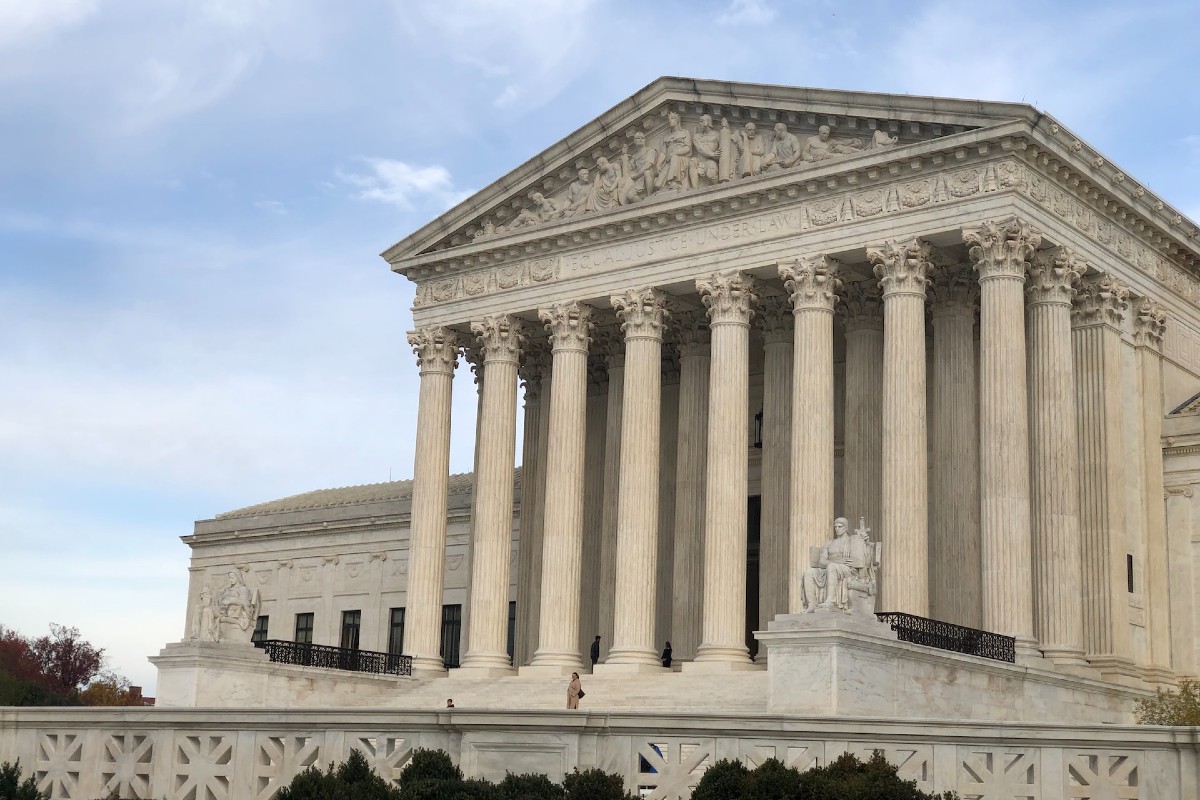

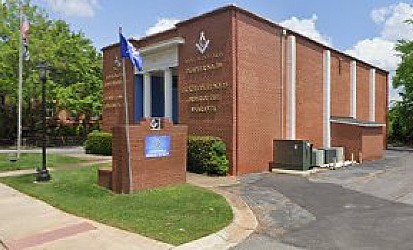
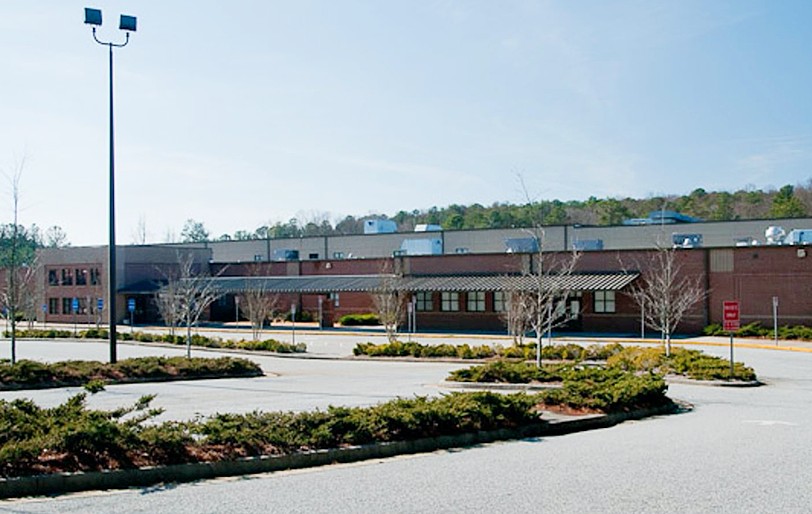

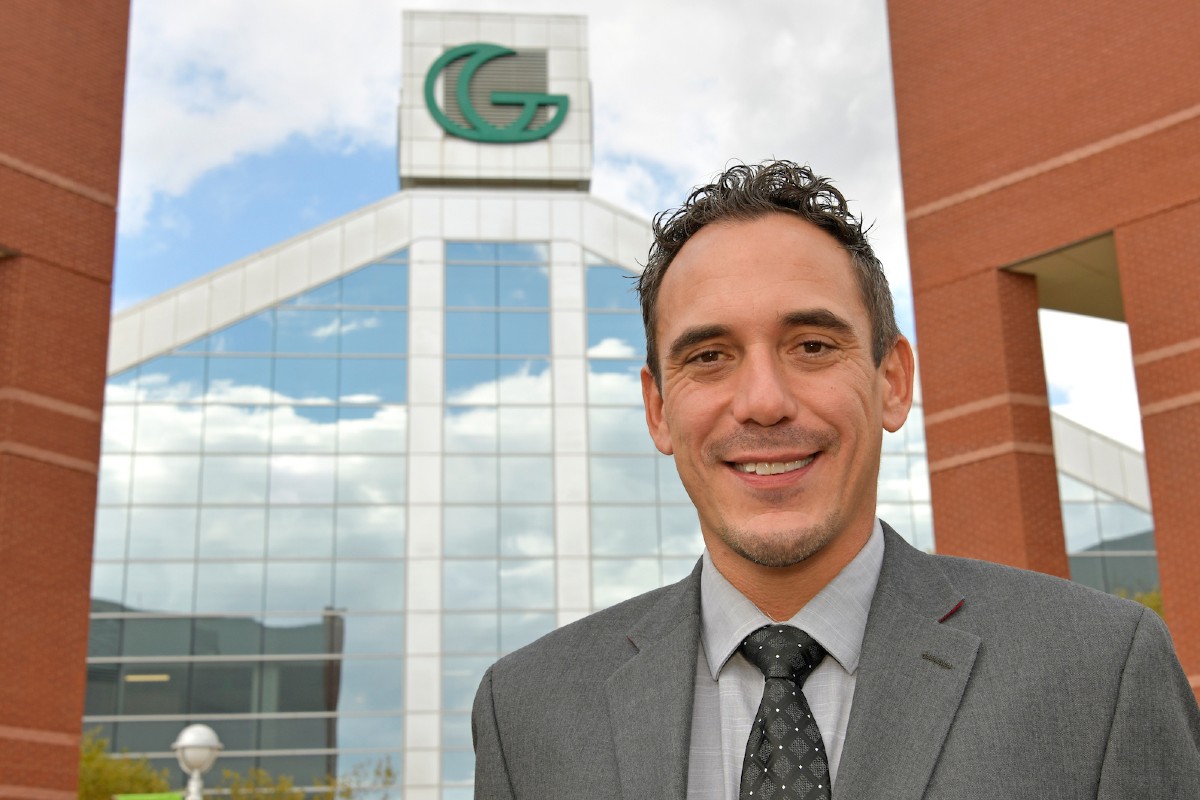

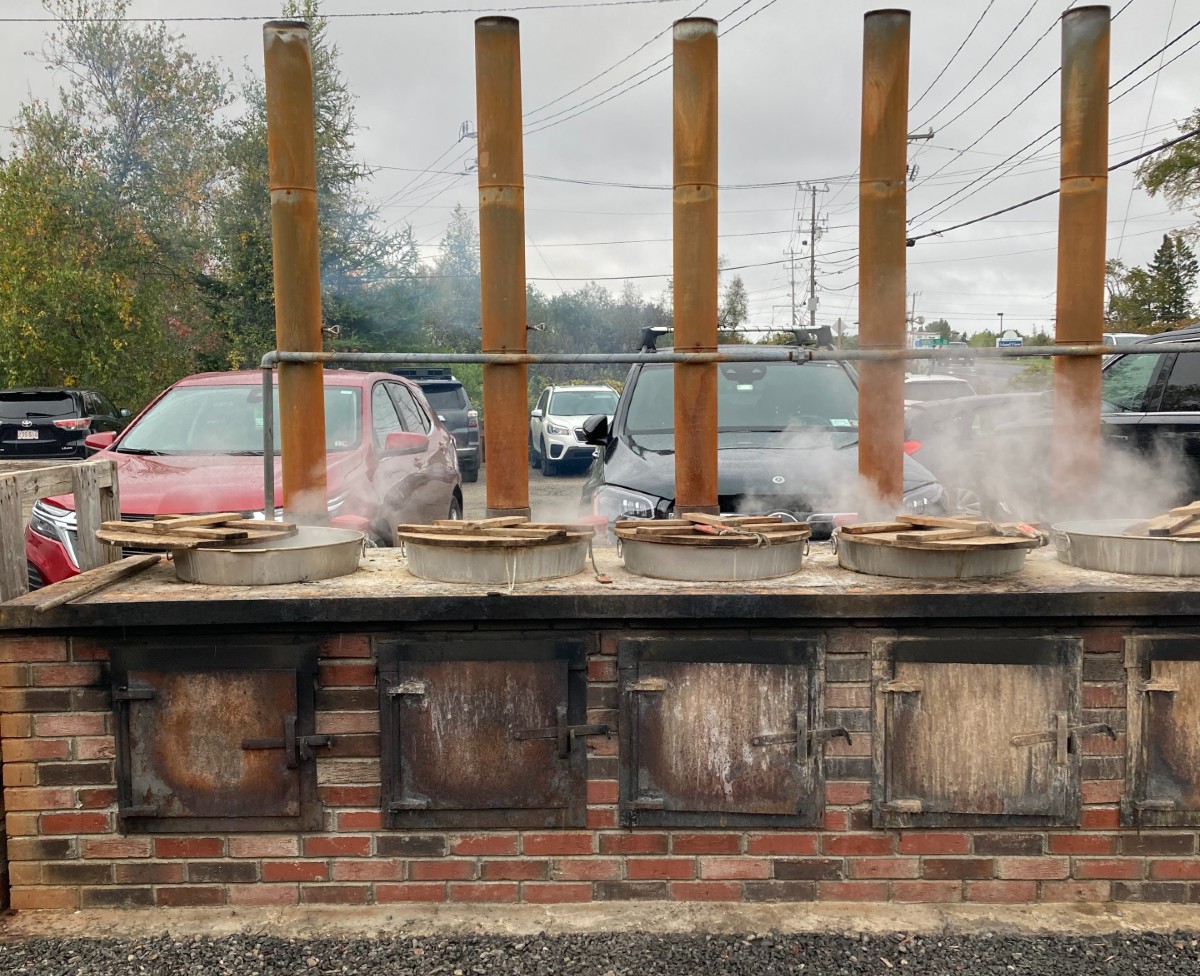








Follow Us